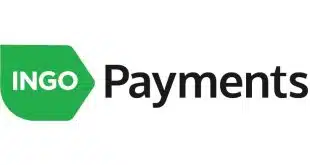VeriFone Systems Inc. continued on its road to recovery during its third quarter of fiscal 2013 ended July 31, a road that led the leading U.S. point-of-sale terminal maker through a sharp drop in revenues in some countries and ended with a $1.9 million loss versus a $37.7 million profit a year earlier.
San Jose, Calif.-based VeriFone on Thursday reported net revenues of $416 million, down 15% from $489 million in fiscal 2012’s third quarter. Revenues from so-called System Solutions, which include countertop terminals and other hardware, tumbled 28% to $250.8 million but services revenues grew 19% to $165.2 million.
A new management team led by interim chief executive officer Richard McGinn for the past six months has been trying to rebuild VeriFone’s business in the wake of operational miscues by the regime of now-departed CEO Douglas Bergeron. They included delays in getting terminals and other products certified by processors in some countries, resulting in business lost to competitors who had products ready to go.
That problem was especially acute in Brazil and Canada, two big markets for VeriFone, according to McGinn and chief financial officer Marc E. Rothman. In a conference call with analysts, Rothman attributed a “substantial portion” of VeriFone’s $12.5 million revenue drop from the second quarter to certification issues in “two or three countries.” Latin American revenues fell 16% to $69.9 million.
In Canada, VeriFone’s certification problems contributed to a 5% year-over-year decline in North American revenues, to $115.8 million. They also enabled VeriFone’s arch-rival, Ingenico S.A., to pick up market share, although neither McGinn nor Rothman mentioned France-based Ingenico by name.
“As far as Canada is concerned, we were not battle-ready in terms of things that we’d done in the past couple of years,” McGinn said. “Customer reaction was not positive … our good competitor, our primary competitor, took advantage of that as one would, which had them get a big move-up in terms of business vis a vis us.”
Now, however, VeriFone “is back on top of it now” and will soon have a full lineup of portable and related devices for mobile payments that Canadian merchants want, according to McGinn. VeriFone also is getting its act together in Brazil, where it recently won a large contract, and it also has won sizable new business in Russia and the United Kingdom, he said. In the U.S., it picked up a sizable contract from a retailer that “manages 78,000 check-out lanes,” McGinn said.
In addition to cranking out new hardware, including products for mobile payments, VeriFone is going full-bore into selling more software and related transaction-based services. This week it announced a payment system for tablet computers called GlobalBay Merchant as well as a new mobile-payments app for taxicabs. VeriFone also has opened its new Linux-based software platform to outside developers, McGinn said, enabling them to create programs that work with VeriFone products.
McGinn referred to a promise he made last quarter that VeriFone was embarking on a “substantial increase” in research and development. The company spent $46.1 million in R&D in the third quarter, up 19% from $38.6 million a year earlier.
In other news, McGinn said the company was getting close to naming a permanent chief executive, but he didn’t say when it would have an announcement.
n
n





